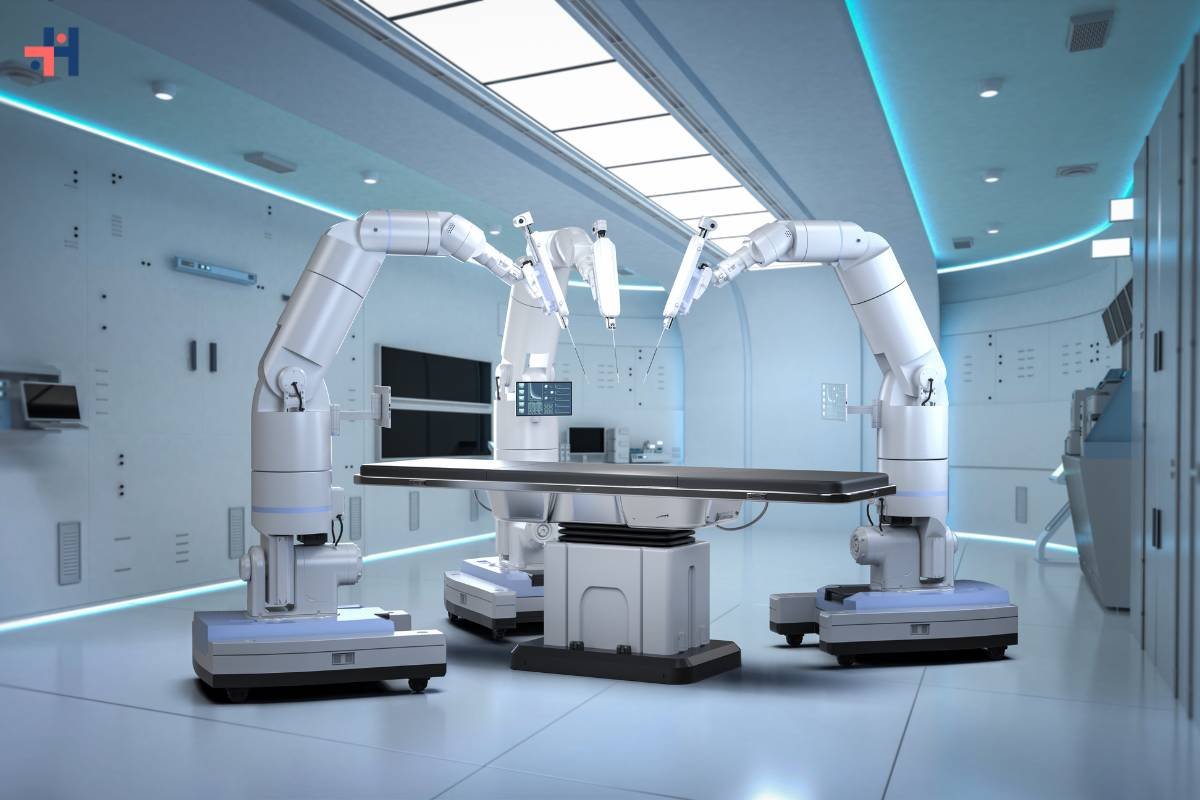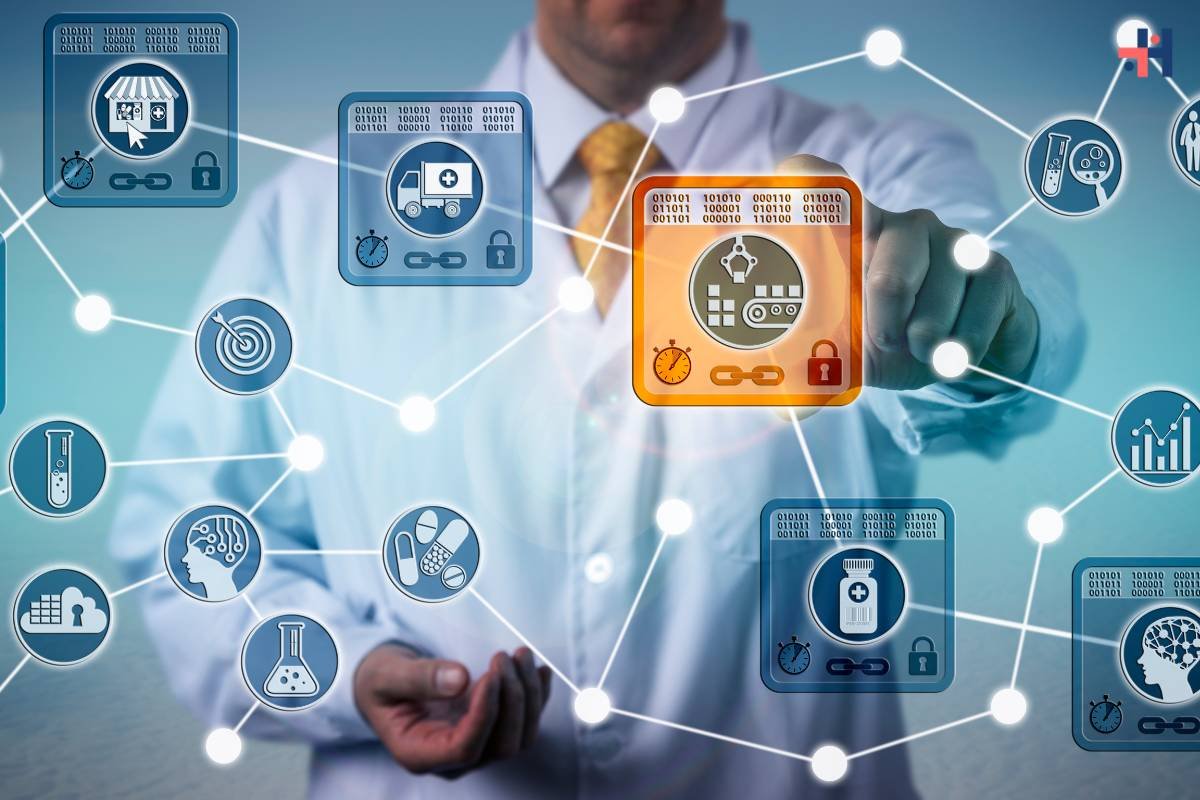Innovations in healthcare are driving transformative changes across the industry, revolutionizing patient care, improving outcomes, and enhancing the overall healthcare experience. From groundbreaking technologies to novel treatment approaches, the healthcare landscape is constantly evolving to meet the ever-changing needs of patients and providers. This blog explores the latest advancements in healthcare and their profound impact on shaping the future of medicine.
Internet of Medical Things (IoMT)
The Internet of Medical Things (IoMT) refers to interconnected medical devices and applications that collect and transmit healthcare data over the Internet. IoMT devices, such as wearable sensors, smart implants, and remote monitoring systems, enable real-time health monitoring, disease management, and early intervention. By harnessing the power of IoMT, healthcare providers can remotely monitor patients’ vital signs, track medication adherence, and detect health anomalies, thereby improving patient outcomes and reducing healthcare costs.
Nanotechnology in Medicine

Nanotechnology holds immense potential in healthcare for its ability to manipulate matter at the nanoscale level. Nanomedicine, the application of nanotechnology in medicine, encompasses a wide range of innovative approaches, including targeted drug delivery, diagnostic imaging, and regenerative medicine. Nanoparticles, nanoscale drug carriers, and nanosensors offer precise control over drug release, enhance therapeutic efficacy, and enable early detection of diseases. With continued research and development, nanotechnology promises to revolutionize the diagnosis and treatment of various medical conditions, ushering in a new era of personalized medicine.
Augmented Reality (AR) and Virtual Reality (VR) Innovations in Healthcare
Augmented reality (AR) and virtual reality (VR) technologies are reshaping healthcare delivery by creating immersive, interactive experiences for both patients and providers. In healthcare, AR and VR applications are used for medical training, surgical planning, patient education, and pain management. Surgeons can visualize complex anatomical structures in 3D, simulate surgical procedures, and practice surgical techniques in a risk-free virtual environment. Patients, on the other hand, can undergo virtual reality therapy for pain relief, anxiety reduction, and rehabilitation. With the advancement of AR and VR technology, healthcare professionals can deliver more effective treatments and improve patient outcomes.
Robotics-Assisted Surgery
Robotics-assisted surgery combines robotic technology with surgical expertise to enhance surgical precision, dexterity, and control. Surgical robots, such as the da Vinci Surgical System, enable minimally invasive procedures with smaller incisions, reduced blood loss, and faster recovery times compared to traditional open surgery. By providing surgeons with enhanced visualization, articulation, and ergonomics, robotic-assisted surgery improves surgical outcomes, reduces complications, and enhances patient safety. As robotics technology continues to evolve, the scope of robotic-assisted surgery is expected to expand, offering new possibilities for complex procedures and specialized interventions.

Pharmacogenomics
Pharmacogenomics is the study of how genetic variations influence an individual’s response to medications. By analyzing genetic markers and drug metabolism pathways, pharmacogenomics helps healthcare providers tailor drug therapies to each patient’s unique genetic makeup. This personalized approach to medication management maximizes treatment efficacy, minimizes adverse drug reactions, and optimizes drug dosing. Pharmacogenomic testing can identify patients at risk of adverse drug reactions, guide medication selection, and improve medication adherence, leading to better clinical outcomes and enhanced patient safety.
Gene Editing and Gene Therapy
Gene editing technologies, such as CRISPR-Cas9, have revolutionized the field of molecular biology and opened new avenues for treating genetic disorders. Gene editing enables precise modifications to the DNA sequence, allowing researchers to correct disease-causing mutations, modify gene expression, and develop targeted gene therapies. Gene therapy, on the other hand, involves delivering therapeutic genes into a patient’s cells to replace or repair faulty genes. These innovative approaches hold promise for treating a wide range of genetic diseases, including cancer, inherited disorders, and rare diseases, offering hope to patients who previously had limited treatment options.
Blockchain Innovations in Healthcare
Blockchain technology offers a secure and decentralized platform for storing, managing, and sharing healthcare data. By creating tamper-proof, transparent, and immutable records, blockchain enhances data security, privacy, and interoperability across healthcare systems. Blockchain-enabled applications, such as electronic health records (EHRs), medical supply chain management, and patient identity verification, streamline administrative processes, reduce data breaches, and improve care coordination. As healthcare organizations increasingly adopt blockchain technology, patients can expect greater control over their health data and more seamless access to healthcare services.

Also Read: Exploring Health Insurance Innovations: A Comprehensive Guide
Personalized Medicine and Biomarker Discovery
Personalized medicine focuses on tailoring medical treatments to individual patients based on their unique genetic makeup, lifestyle factors, and environmental influences. Biomarker discovery plays a crucial role in personalized medicine by identifying molecular signatures associated with disease risk, progression, and treatment response. Biomarkers, such as genetic mutations, protein markers, and metabolic signatures, provide valuable insights into disease mechanisms and guide the development of targeted therapies. With advances in genomic sequencing, proteomics, and metabolomics, personalized medicine is poised to revolutionize healthcare by delivering precise, patient-centered treatments that improve outcomes and quality of life.
Conclusion: Embracing a Future of Innovations in Healthcare
In conclusion, the industry is experiencing a paradigm shift driven by groundbreaking innovations in healthcare and technological advancements. From IoMT and nanotechnology to AR/VR and robotics-assisted surgery, these innovations hold the promise of improving patient care, enhancing clinical outcomes, and transforming the delivery of healthcare services. As healthcare organizations embrace these transformative technologies and adopt a personalized, data-driven approach to medicine, they can navigate the complexities of modern healthcare and usher in a future where healthcare is more accessible, efficient, and effective for all. By staying at the forefront of innovation in healthcare industry can continue to revolutionize patient care and shape the future of healthcare delivery.









